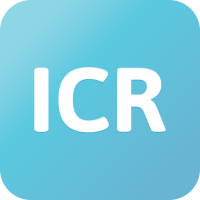For most small and medium-sized enterprises (SMEs), governance is something far away. In other words, measures of good governance are not yet part of daily practice. Particularly explosive growth and/or external demands, for example from an external financier, have changed this to date. Especially to make the likelihood and impact of risks manageable. Oddly enough, because fundamentally every entrepreneur wants to be successful and certainly not fail. Thus, corporate governance aimed at SMEs is actually relevant for every entrepreneur: it is about having control over realizing entrepreneurial ambition. And there's quite a lot involved. Therefore, we will be paying ample attention to this unexplored area in the world of the entrepreneur in the coming period.
Today, Route ICR shares the ninth article from the series 'How to practically implement SME governance'.
Discover the Chance of Successful Entrepreneurship through a Convenient Online Baseline Assessment
Amsterdam, November 3, 2021 - Entrepreneurship is simple. But the hardest thing is to keep entrepreneurship simple. But why is that? Let's discuss this in the coming period. We will also explore how to solve this problem. Today, Route ICR shares the ninth article in the series 'How to practically implement SME governance'.
Starting entrepreneurs have the opportunity to choose the right approach from the very beginning. For entrepreneurs who have been in business for a while, it's a different story. They have developed their own working methods and rely on them every day. For this group, understanding where they stand is the starting point for improvement. They perform the necessary ICR baseline assessment online. It is an investment in and the starting point of successful entrepreneurship.
How solid is the foundation under your business's success?
With the comprehensive ICR baseline assessment, you map out the current situation of your business based on your ready knowledge. This includes understanding the strong points of your business operations and, more importantly, the areas for improvement. Conducting the baseline assessment takes about an hour, and possibly longer if your ready knowledge is lacking. Overall, it's a manageable investment in your business's success. Through the assessment, your business's grades for the 33 ICR objectives and the 5 ICR growth circles are summarized on one A4 sheet. This also immediately reveals your business's ICR, showing how solid the foundation under your business's success is and what you need to work on to strengthen it. This increases the chance of successful entrepreneurship.
Perform the ICR Baseline Assessment Online and Independently
You can perform the baseline assessment independently or with the help of a business coach. From the user-friendly ICR dashboard, you assign the most appropriate grade for how your organization meets each objective. Make sure to be critical and thus give as honest grades as possible. Only then will you see where the potential for improvement lies. The baseline assessment is, therefore, the first step in your organization's improvement process. The ICR serves as your growth compass. The better your ICR, the greater the chance of successful entrepreneurship, and thus the greater the chance of realizing your entrepreneurial ambition. This is what makes the implementation of SME governance in practice so valuable!






